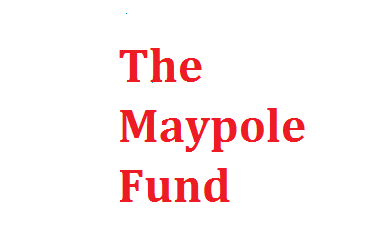- Six Reasons To Bring Millets To The Market!
- Hong Kong Court Makes Landmark Ruling Protecting Transgender Rights
- Substrate Promiscuity Of Fungi Generated Enzyme Laccase Shows Potential In Degrading Industrial Dye Effluents
- Union Minister Of Rural Development Holds A Meeting On ‘Cactus Plantation And Its Economic Usage’
- Ministry Of Tribal Affairs Organised One Day Mega Health Camp ‘Abua Bugin Hodmo-Our Better Health’ At Saraikela Kharsawan, Jharkhand
- Blue Flag Standards For Beaches In The Country
- India-Namibia Sign An MoU On Wildlife Conservation And Sustainable Biodiversity Utilization
- Hydrophobic Ingredients, In Combination With Obsolete Antibiotics, Can Counter Multidrug-Resistant Bacteria
- Promoting Cultivation Of Kala Namak Paddy
NGO moves to NGT, wants meat processing units closed
Posted by: 2017-01-19 13:16:09 ,By Raj Kumar
Nagpur: To bring an end to illegal slaughtering of animals, city NGO Sukrut Nirman Charitable Trust has once again moved to the National Green Tribunal (NGT). The NGO has demanded punitive action against the illegal meat processing units of the state.
Based on a petition filed by the NGO, the Western Zone bench of NGT, Pune has issued notices to secretaries of state's animal husbandry, environment and public health departments. Apart from this, notices have also been issued to state's directorate of industries, Maharashtra Pollution Control Board, convener of state slaughter house committee and over 15 meat processing units of the state that are not complying environmental norms.
Sukrut had earlier filed a PIL in Nagpur bench of Bombay High Court in 2012 which was later shifted to NGT on June 18, 2014. President of the NGO Kanakrai Savadia had challenged setting up of two meat processing and cold storage units — Shahin Frozen Foods and Best Cold Storage Pvt Ltd — in Taroda near temple town of Shegaon.
In its judgement of December 24, 2014, the NGT had directed MPCB to ensure that both the industries maintain record of sourcing of slaughtered animals. The board's member secretary was further directed to review environmental performance and consents issued to both the industries and also issue appropriate time-bound directions for upgradation of pollution control systems.
However after the NGT blasted the pollution board for not following Supreme Court directives while issuing licences to meat processing units, MPCB had ordered closure of both the units.
In the present petition, the NGO has demanded that the same directions should be applicable to all the meat processing and cold storage units being run in the state. "Based on the information sought under Right to Information Act, we submitted various representations to the respondents but in vain. Flouting NGT's directives, MPCB has not directed the units to maintain records of sourcing of slaughtered animals along with other necessary details. Large-scale animal slaughtering is done for the functioning of these units," the petitioner stated.
As per the petition, the board failed in ensuring practice of environmental norms including solid waste storage and scientific disposal. "The units generate significant amount of solid waste, mostly in the form of bones with some fat flesh. Rather than disposing this waste at bone mills for further processing, the industries store it within their premises over a long period causing pollution," Savadia said.
Read more: Click Here
You may like similar news
NGO, local police conducted raid at a slaughter house in Ahmednagar, 46 calves rescued
MUMBAI: A major raid was recently conducted at an illegal slaughterhouse in Sangamner, Ahmednagar di...

‘India ready to help restore peace’: PM Narendra Modi tells Vladimir Putin on Ukraine conflict
Prime Minister Narendra Modi on Tuesday reiterated a peaceful solution to the ongoing Russia-Ukraine...

Chhath Puja 2024: Is it on November 05 or 07? Know the correct date, time of the auspicious four-day Hindu festival
If you thought that the October air is filled with festive spirit, wait till we tell you that the ce...

Bharat Tex 2025 gains international momentum:
Ministry of Textiles organized an interactive Session with Foreign Missions in India for Bharat Tex ...

PRESIDENT OF INDIA PRESENTS NATIONAL WATER AWARDS
The President of India, Smt. Droupadi Murmu presented the fifth National Water Awards in New Delhi t...









